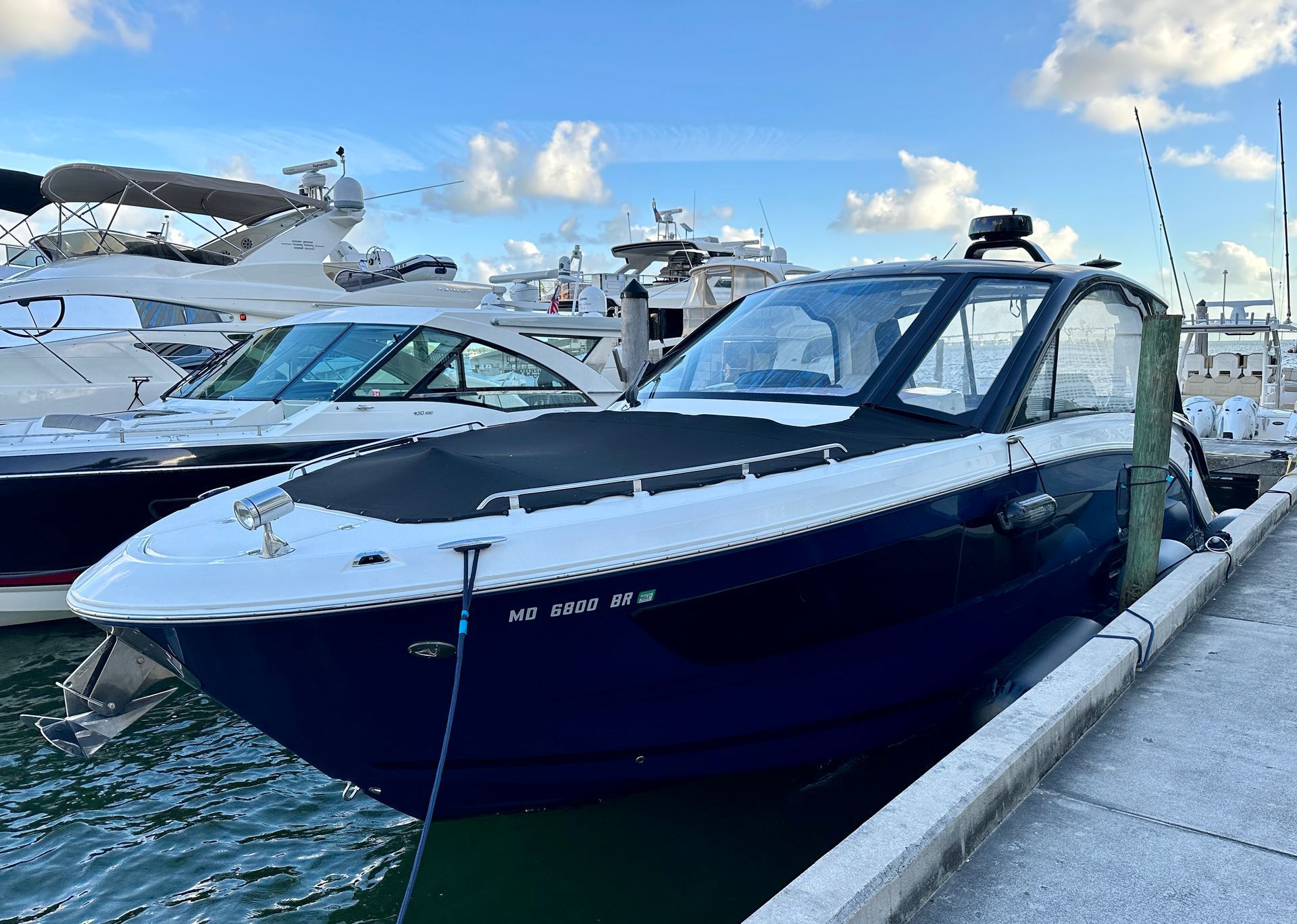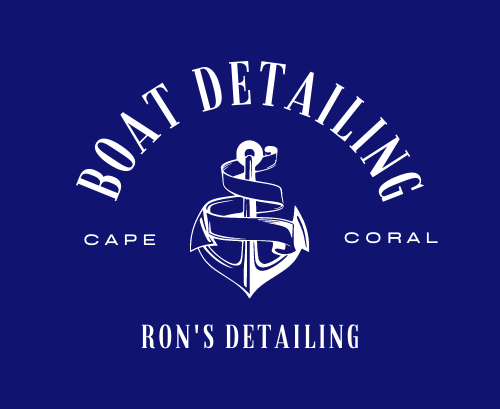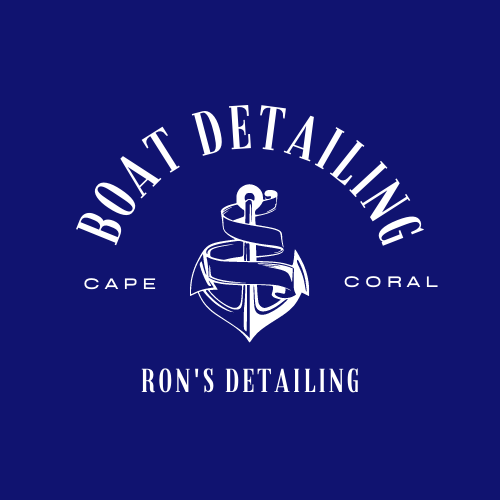Boat & Yacht Maintenance Guide
Our Guide To Boat Maintenance and Boat Cleaning
Discover the essentials of effective boat maintenance with our comprehensive boat maintenance and cleaning guide. Whether you're a seasoned veteran or a first-time boat owner, the key to preserving the beauty and functionality of your vessel lies in meticulous boat detailing. This guide covers expert techniques for deck cleaning to combat tough grime, explores the intricacies of interior cabin detailing for a fresh and inviting atmosphere, and delves into the nuances of hull cleaning to ensure optimal performance and aesthetics. We navigate through the key aspects of boat detailing, unlocking the secrets to maintaining a vessel that's both seaworthy and a source of pride in every detail.
Regular boat cleaning is integral to the overall maintenance and longevity of a vessel. Beyond the obvious benefit of preserving its appearance, routine cleaning plays a vital role in preventing corrosion, particularly in metal components exposed to the corrosive effects of saltwater. A clean boat performs optimally, with a smoother hull contributing to improved fuel efficiency and maneuverability. In interior spaces, such as cabins, cleaning is crucial to preventing mold and mildew growth in the damp marine environment. Most importantly, a well-maintained and clean boat retains a higher resale value, making regular cleaning an investment in the vessel's overall enjoyment and financial worth.
Whether you are a proud boat owner looking to impress guests or a charter service provider aiming to provide a top-notch experience, professional boat cabin detailing is an investment worth making. Contact
Ron's Boat Detailing today and enjoy a truly pristine marine experience.
Tips For Regular Boat Care and Cleaning
Storing Your Boat Properly: Boats can be stored several ways including outdoors, indoors, and in water. We recommend using either elevated outdoor storage options or indoor storage to avoid prolonged exposure to seawater. Boats stored indoors in dry stack facilities are shielded the most from the outdoor elements and often last the longest. Boats stored outdoors should be done so with some element of shade, either under a cover or dock awning. Boats stored in the water at docks and marinas are the most exposed to saltwater and corrosion and need to have their hulls cleaned frequently. However, with larger-sized boats, this may be the only suitable option.
Keeping the Exterior Clean: Maintaining a clean exterior for a boat is essential for various reasons integral to its overall upkeep and performance. Firstly, regular cleaning prevents the accumulation of dirt, salt, and other debris on the hull, ensuring the boat maintains its aesthetic appeal. The cleanliness of the boat's exterior plays a crucial role in preventing corrosion. Exposure to saltwater can lead to the formation of corrosive deposits, particularly on metal components. Regular cleaning helps mitigate these effects, preserving the integrity of vital hardware, fittings, and the hull itself. Perhaps most importantly, a well-maintained vessel, evident in a clean and well-kept exterior, retains higher resale value.
Engine, Propellor, Battery, Oil, and Filter Maintenance: Regular engine maintenance is crucial for the optimal performance and longevity of your boat. Periodically inspect the engine for any signs of wear, such as cracked hoses or loose belts, promptly replacing them to prevent issues. Check for corrosion and ensure the outboard motor is securely in place. Pay special attention to the propeller, as it significantly influences performance and fuel economy. Before launching, inspect the propeller for security, tightening the nut with a deep socket wrench if necessary. Look for any damage, such as small dents, that could impact fuel efficiency. A biannual propeller removal for shaft greasing helps maintain its condition.
The boat's battery is a vital component, impacting engine start-up and electrical functionality. Regularly check the battery, especially during the boating season, and use a digital multimeter to assess its charge. Address any corrosion on the connectors promptly with a wire brush. Given that batteries naturally degrade over time, staying vigilant in their care is essential.
Timely oil changes are paramount to prevent engine damage. Follow a schedule for oil and oil filter changes, running the engine for approximately seven minutes before turning it off. Place a container under the drain plug and remove it, allowing the oil to drain for about 30 minutes. Simultaneously, change the oil filter. After drainage, replace the drain plug, tighten the screw, and refill the engine with the appropriate oil. Adhering to these maintenance practices ensures a reliable and efficient boating experience.
Get Your Boat Detailed and Waxed Every 3-6 Months: Frequent boat waxing offers crucial protection against UV rays, saltwater, and pollutants, preventing oxidation and corrosion. It preserves the vessel's glossy appearance, making cleaning easier and reducing the likelihood of marine growth. Regular waxing not only enhances the boat's aesthetic appeal but also contributes to its resale value, signaling proactive maintenance to potential buyers. Ultimately, it's a worthwhile investment for both the longevity and attractiveness of your boat.
Boat and Yacht Waxing
Waxing a boat involves applying a protective wax coating to the exterior surfaces, typically the hull and topsides, to shield the vessel from the damaging effects of UV rays, saltwater, pollutants, and environmental elements. This process helps prevent oxidation, fading, and corrosion, preserving the boat's appearance and structural integrity. Waxing also enhances the vessel's gloss, making it easier to clean and contributing to a sleek and well-maintained aesthetic. Additionally, the protective layer created by waxing acts as a barrier against marine growth, reducing the likelihood of barnacles and algae adhering to the hull. Overall, waxing is a crucial step in maintaining and prolonging the life of a boat. Our waxing is done by hand with non-abrasive materials. When the boat or yacht is extremely dirty, we may perform a light wash before a wax only or buff and wax service.
Buff and Wax
Buffing and waxing for a boat are essential steps in revitalizing and safeguarding its exterior surfaces. Buffing, conducted with a buffing machine and polishing pad, mechanically eliminates imperfections, oxidation, and light scratches present on the boat's gel coat or painted areas. This process restores the gloss and smoothness, addressing dullness and blemishes caused by exposure to environmental elements. Following buffing, waxing comes into play as a protective measure. The application of a wax coating forms a barrier against UV rays, saltwater, and contaminants, preventing oxidation, fading, and corrosion. Beyond protection, waxing enhances the boat's aesthetic appeal, making surfaces easier to clean and contributing to an overall well-maintained appearance. Together, buffing and waxing are integral components of routine boat maintenance, ensuring longevity, shine, and resilience against the harsh marine environment.
Hull Cleaning
Revitalize your vessel with a professional hull cleaning service, dedicated to enhancing the performance, appearance, and longevity of your boat. Our expert team employs advanced cleaning techniques to remove accumulated marine growth, barnacles, and algae from the hull, ensuring optimal hydrodynamics. By eliminating these underwater invaders, we not only boost your boat's speed and fuel efficiency but also prevent potential damage to the hull. Our meticulous approach extends to the removal of stubborn stains, oxidation, and contaminants, leaving your hull gleaming and ready to navigate with efficiency. Trust us to deliver a comprehensive hull cleaning service that goes beneath the surface to preserve the integrity and aesthetics of your prized watercraft. Elevate your boating experience with a hull that not only looks great but performs at its best.


Frequently Asked Questions
How Much Does Regular Boat Maintenance Cost?
As a general rule of thumb, even if you don’t want to lift a finger beyond washing your boat and flushing the engine, annual boat maintenance costs rarely exceed 10-percent of the boat’s cost. And in the early years when pieces and parts generally don’t need replacing, it’s often far less. Average boat maintenance and cleaning costs are, of course, going to vary quite a bit depending on the type and size of the boat you buy and just how often and how hard you use it.
How Should I Prepare My Boat For Extended Periods Of Non-Use?
To prepare your boat for extended periods of non-use, thorough cleaning is the initial imperative. Clean both the interior and exterior meticulously, removing dirt, salt, and grime to prevent corrosion and deterioration. Conduct a comprehensive inspection of the hull, engine, and critical components, addressing any issues or necessary repairs before storage.
Change the oil and other fluids to prevent corrosive build-up. Stabilize the fuel with a fuel stabilizer and run the engine to circulate treated fuel. Attend to the bilge by cleaning it thoroughly and using moisture absorbers to prevent mold growth. Care for the boat's battery by removing it if possible or using a maintainer. Inspect and protect electronic components and wiring, lubricate electrical connections, and inspect the propeller and outdrive.
Clean and protect the boat's interior, removing valuables and ensuring proper ventilation. Cover the boat with a quality, breathable cover, and if storing outdoors, use jack stands or a trailer for support. Maintain adequate ventilation in storage areas to prevent mold and mildew, and keep a record of maintenance activities for future reference. Following these steps ensures that your boat remains in optimal condition during periods of non-use and is ready for seamless use upon your return to the water.
When Should I Replace My Boat's Battery?
Determining when to replace your boat's battery is pivotal for maintaining reliable performance on the water. Typically lasting between 3 to 5 years, the age of the battery is a key factor in deciding when to consider replacement. If you observe a notable decline in performance, such as difficulty starting the engine or a reduced lifespan between charges, it may signal the need for a new battery. Conduct a visual inspection for signs of damage, leaks, or corrosion, as these could indicate a compromised battery. Utilizing tools like a digital multimeter to measure voltage or a hydrometer for lead-acid batteries can provide further insights into the battery's health. If you find yourself frequently jump-starting the boat or experiencing rapid charge depletion during off-season storage, these are additional indicators that a replacement may be necessary. Additionally, be mindful of usage patterns, as heavy usage, deep discharges, and improper charging can contribute to a shorter battery lifespan. Regular monitoring and proactive replacement based on these considerations will help ensure a dependable power source for your boating needs.
How Do I Know When To Change The Engine Oil For My Boat?
Knowing when to change the engine oil for your boat is essential for maintaining optimal engine performance. The frequency of oil changes depends on several factors, including the type of engine, how often you use the boat, and the operating conditions. As a general guideline, many boat manufacturers recommend changing the oil at least once a year, even if the engine hasn't reached a specific number of running hours. However, for boats that see frequent use or operate in challenging conditions, more frequent oil changes may be necessary. Regularly check the manufacturer's recommendations in your boat's manual for specific guidelines on oil change intervals. Additionally, pay attention to the oil's color and viscosity. If the oil appears dark and thick, it's an indication that it may be time for a change. Keeping up with a consistent oil change schedule is crucial for ensuring the longevity and reliable performance of your boat's engine.
What Not To Use When Cleaning A Boat?
When cleaning a boat, it's important to avoid certain products and practices to prevent damage to the boat's surfaces and components. Here are things you should not use when cleaning a boat:
- Household Cleaners: Avoid using household cleaners like bleach, ammonia, or abrasive cleaners. These can damage the boat's gel coat, paint, and other surfaces, leading to discoloration and deterioration.
- Abrasive Materials: Do not use abrasive brushes, scouring pads, or abrasive cleaning materials on surfaces like fiberglass or gel coat. These can scratch and dull the finish.
- Harsh Chemicals: Stay away from harsh chemicals, especially those containing acetone or other solvents. These can damage the boat's surfaces and may be harmful to the environment.
- Wire Brushes or Steel Wool: Avoid using wire brushes or steel wool on metal surfaces, as these can scratch and cause corrosion.
- High Pressure Water: While pressure washers can be useful, using excessively high pressure can force water into areas it shouldn't go, potentially causing damage to seals, electronics, or other sensitive components.
- Vinegar on Stainless Steel: While vinegar is often used for cleaning, avoid using it on stainless steel surfaces, as it can cause discoloration and damage.
- Abrasive Polishing Compounds: Be cautious with abrasive polishing compounds, especially on delicate surfaces. They can remove more material than necessary, leading to unintended damage.
Contact Us
Home Page Bottom Form
Thank you for contacting us. We will get back to you as soon as possible. For speedier and more urgent service, feel free to give us a call at 828-818-8482.
Please try again later
Location
Call
All Rights Reserved | Ron's Boat Detailing

